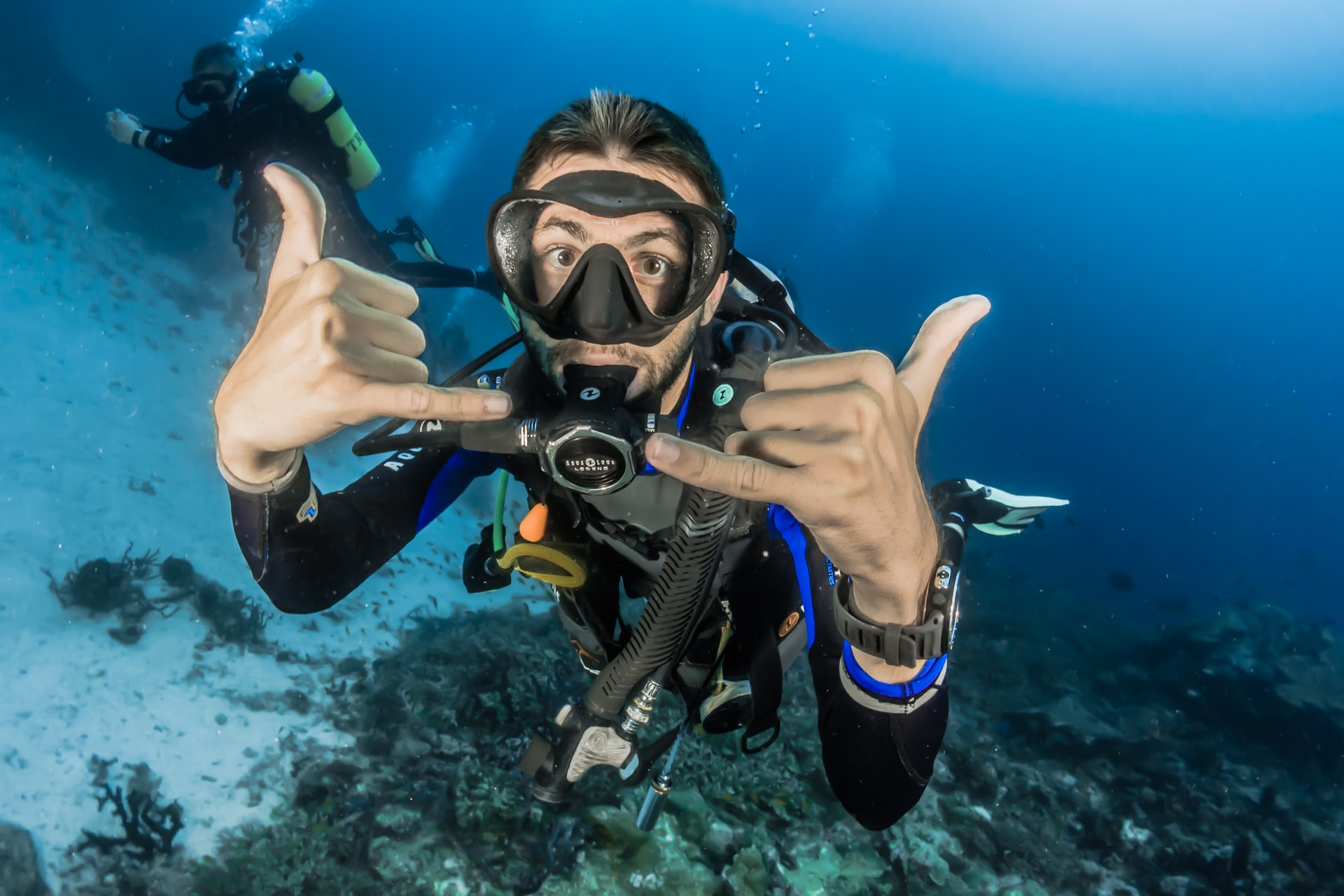There’s nothing better between dives on holiday than a little snooze in the sun, but did you ever wonder why scuba diving makes you tired?
As well as being great fun, scuba diving is a form of physical exercise, so it can be normal to feel a little tired afterward.
We’ll discover the other factors involved and see that feeling overly or abnormally tired after diving might not be right and could be a warning sign of potential problems.
So, let’s take a look at what’s normal and what’s not, and what we can do to feel more awake after each underwater adventure.
- Is It Normal to Feel Tired After Scuba Diving?
- Are Some Dives More Tiring Than Others?
- Does My Gas Mix Affect How Tiring a Dive Is?
- Does the Water Temperature Affect How Tired I Feel When Scuba Diving?
- Is It Dangerous to Feel Tired When Scuba Diving?
- Is It Possible to Fall Asleep While Scuba Diving?
- What Should I Do When I Start Feeling Tired When Scuba Diving?
- How Can I Avoid Feeling Tired When Scuba Diving?
- What Should I Do After Scuba Diving When I Feel Tired?
- Conclusion
- You Might Also Like…
Is It Normal to Feel Tired After Scuba Diving?
Some degree of tiredness, defined as being “drained of strength and energy,” is relatively common after scuba diving.
Exactly how tired is normal will vary from person to person and can be caused and affected by several factors.
Physical Exertion
Straight out, we can recognize that scuba diving is a form of physical exercise, and as with any exertion, it’s normal to feel a little tired afterward.
This might leave us feeling lethargic physically and mentally.
An average scuba dive can burn up to around 600 calories an hour, about the equivalent of jogging, so it’s reasonable to notice this when you’re back on the boat.
So long as the tiredness isn’t excessive or abnormal, it’s likely not anything to be overly concerned with.
Usually, rehydrating and taking on some food calories brings the diver back to feeling normal quite quickly.
Heart Function Underwater
Just being underwater puts an increased workload on the heart caused by the surrounding pressure.
About two-thirds of a liter of blood will move from the extremities and become concentrated in central areas resulting in the heart needing to work harder.
To respond, the body produces hormones that encourage the kidney to excrete liquid to reduce the pressure increase.
When the diver exits the water, the external phenomenon stops, and the central blood volume will reduce.
As a consequence of this volume decline, the associated blood pressure reduction, and overall dehydration, extra fatigue may be felt.
Rehydrating after the dive with correctly balanced liquids will usually quickly make you feel more awake quite quickly.
Other Factors
Several other factors can be the cause of tiredness that a diver might feel, including:
- Thermal stress
- Individual physical fitness levels
- Diver experience level
- Anxiety
- Seasickness
- Lack of sleep (especially on holidays)
- Alcohol consumption the night before
- Jet lag
So if you feel a little tired, it’s worth trying to identify if one of these could be contributing and eliminate it as appropriate.
Decompression Sickness
Decompression Sickness (DCS) (known as “The Bends”) is the term for the negative effects caused when the nitrogen gas that divers absorb during a dive comes out of solution too quickly and forms bubbles in the tissues or bloodstream.
DCS can be extremely dangerous and must be taken seriously.
The commonly recognized signs and symptoms of decompression sickness (DCS) include:
- Numbness
- Headache
- Dizziness
- Nausea
- Pain
- Weakness
- Unusual fatigue
- Difficulty walking
So we should consider that unusual or excessive tiredness after a dive may be cause for concern.
It should also be realized that diving when already overly tired can make DCS more likely.
Whenever there is any concern of DCS then, assuming no other life-threatening injury takes precedence, the primary treatment is to give the patient 100% oxygen to breathe.
Expert medical advice must be obtained from a hyperbaric doctor, and the patient treated accordingly.
If a diver is in good health, DCS risk can be reduced by diving responsibly and avoiding factors that make you more likely to be susceptible, such as dehydration and smoking.
It is suggested that “subclinical” DCS from nitrogen micro-bubbles in the blood and tissues that are not significant enough to cause the more common symptoms could cause the general tiredness felt after scuba diving.
However, this is subject to a great deal of scientific debate, and it is more likely that the other factors we’ve covered are the more common cause.
However, it is vital to always minimize the risk of DCS by diving conservatively, avoiding yo-yo (sawtooth) dive profiles, ascending slowly, and making a safety stop before ending the dive.
Are Some Dives More Tiring Than Others?
Without a doubt, some factors will make some dives more tiring than others.
For example, diving with a strong current you need to swim into will significantly increase your exertion and subsequent tiredness.
In contrast, a dive spent photographing one area and hardly moving will use far less energy.
Additionally, diving in colder water will make the body work harder to keep warm, making you more tired.
Any dive where you’re under increased stress or anxiety, for example, in poor visibility, could also make you feel a greater sense of tiredness after the dive.
Does My Gas Mix Affect How Tiring a Dive Is?
It is often believed that diving with Enriched Air (Nitrox), where there is an elevated percentage of oxygen in the gas mix, can reduce post-dive fatigue.
Many divers will tell you that they feel better after a nitrox dive versus one with air.
However, while there are many benefits associated with diving Nitrox, there isn’t any conclusive scientific research to suggest that reducing tiredness after diving is one of them.
Indeed, the Divers Alert Network (DAN) state that:
“Despite a common impression that diving on nitrox may cause less fatigue than performing the same dive using an air mixture, scientific research to date has not found solid evidence to support such an assumption.”
DAN suggests perhaps that the belief is so widely held that there could be a “placebo effect” taking place where divers believe themselves to be less tired.
They do, however, recommend that recreational divers use nitrox as much as possible.
If they feel less tired, they are doing so breathing gas that (when safely used for the same dive as an air diver) reduces the decompression stress on the body, which can only be a good thing.
Does the Water Temperature Affect How Tired I Feel When Scuba Diving?
A very significant factor in how tired you may feel after a dive is the water’s cooling effect on your body.
Water conducts heat from your body 20 times faster than air does.
This causes increased energy usage as your body burns fuel to keep warm.
The cooler the water, the more energy you will use and likely the more tired you will feel afterward.
Is It Dangerous to Feel Tired When Scuba Diving?
Scuba diving is an activity that does need a reasonable level of mental awareness as well as a physical reserve to be carried out safely.
Without worrying about the commonly felt feelings of relaxation that scuba diving can bring, getting excessively tired on a dive could be potentially dangerous.
A diver might not respond quickly enough to, or even be aware of a developing situation until it’s too late, or might not be able to react physically if extra exertion is quickly needed.
It must also be understood that diving when already excessively tired can make DCS more likely.
In general, if you are feeling especially tired, it’s best to signal to your buddy and end the dive safely as quickly as possible.
Is It Possible to Fall Asleep While Scuba Diving?
Yes, it is possible, but really not a good idea!
If a diver was so tired underwater, it could be possible to fall asleep, the same as, unfortunately, it’s possible to while driving a car.
This would be very dangerous as buoyancy control would be lost, and if there wasn’t a shallow bottom, the diver could plunge uncontrolled into the depths.
Additionally, the regulator might fall out of their mouth, leaving them inhaling water and potentially drowning.
Falling asleep on a dive is definitely something we’d want to avoid.
What Should I Do When I Start Feeling Tired When Scuba Diving?
If you start to feel really tired during a dive, it’s best to signal to your buddy and end the dive safely as quickly as possible as it’s improbable that you’ll be able to fix it underwater.
Get back on the boat or to the shore rather than risk any problems that might happen if you continue.
How Can I Avoid Feeling Tired When Scuba Diving?
Firstly, try and get a fair amount of sleep the night before.
You can help this by avoiding caffeine and alcohol before sleeping and, of course, by going to bed at a reasonable time.
Eat a healthy breakfast that contains energy. Oats, cereals, and fruit like bananas are a great idea.
Before the dive, try to relax as much as possible and make sure you’re staying well hydrated.
Listen to the dive briefing if you’re with a Divemaster and ask any questions to reduce any anxiety you might feel.
Choose your exposure suit (wetsuit or drysuit) so that it’s suitable for the conditions, so you don’t get too cold during the dive.
Try and reduce exertion during the dive as much as possible.
If it’s a guided dive, then a great tip is to follow the guide’s path as they’re likely to use their experience to take the easiest route.
If you have to swim against a current, remember that it’s easiest to do so close to the bottom or to the reef wall, where the current will be less.
What Should I Do After Scuba Diving When I Feel Tired?
After the dive, get dry and warm as quickly as possible, as being cold will make you feel more tired.
Make sure you rehydrate quickly as often people can mistake feeling tired or hungry for needing hydration.
Drink balanced liquids like juice, sports drinks, or water with rehydration salts.
Eat a snack that will refuel you for the next dive, like oat bars or fruit, unless it’s lunchtime.
Remember that overeating or having food that is too heavy can make you feel more tired.
Relax, and don’t be afraid for a little snooze between dives if you feel you need to.
Remember that feeling unusually or overly tired could be a sign of decompression sickness.
If you’re concerned in any way, make sure that you seek professional medical advice.
Conclusion
In general, feeling a little bit tired after scuba diving is quite normal so long as you’ve followed safe dive practices.
You could have got a bit cold during the dive, or it might just be because of the physical exertion you’ve made.
Typically you need to get warm, rehydrate and refuel and you’ll be fine.
But do be aware that if the tiredness is unusual or excessive that, although not common, it could be a symptom of decompression sickness, so you should seek professional advice.
You Might Also Like…
-

How Do Scuba Divers Drink Water? 5 Possible Ways (+7 Tips)
-

How Long Can Scuba Divers Stay Underwater? (+9 Limiting Factors)
-
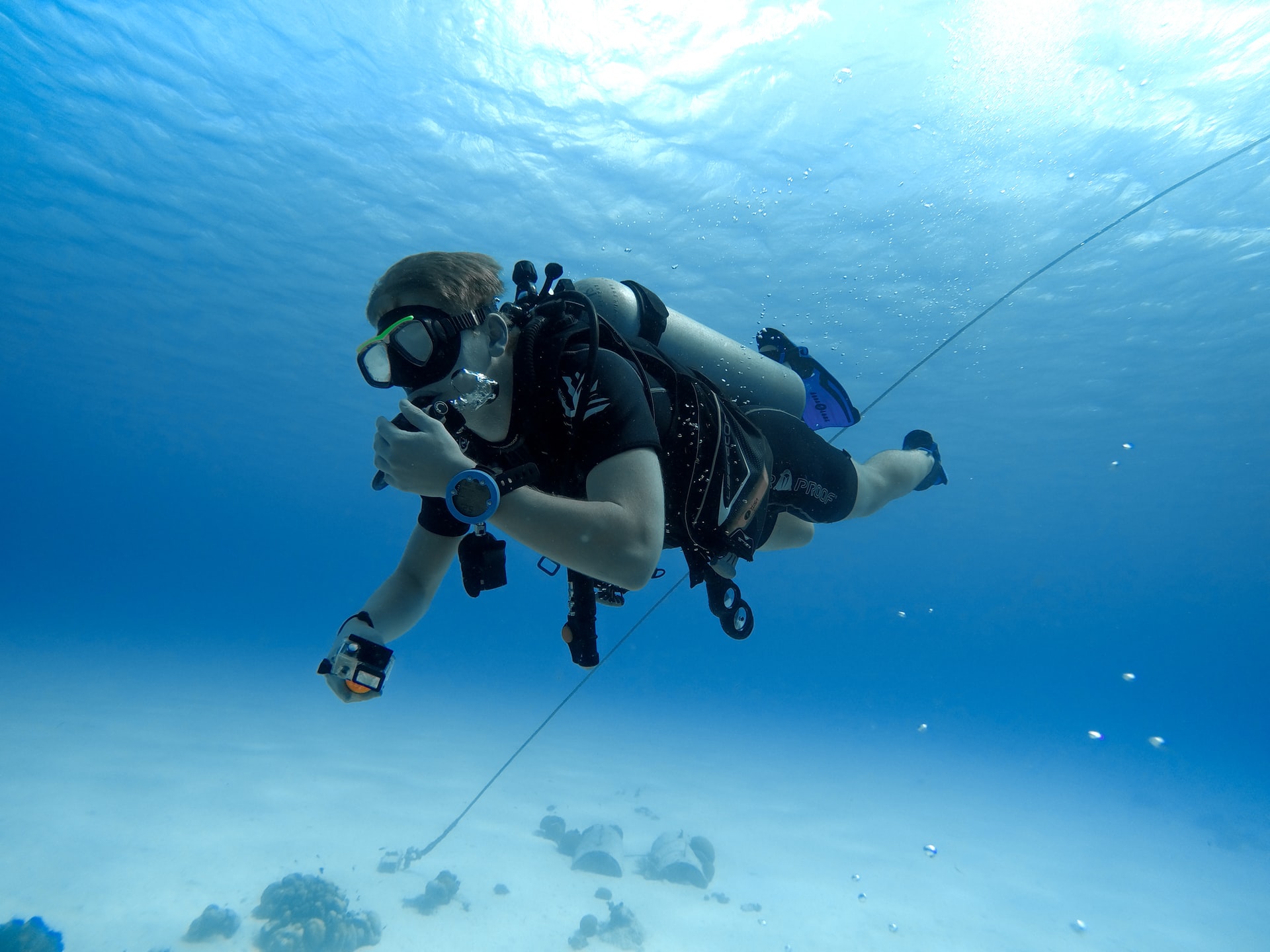
Are Scuba Divers Athletes? All the Facts (+New Competitive Forms)
-
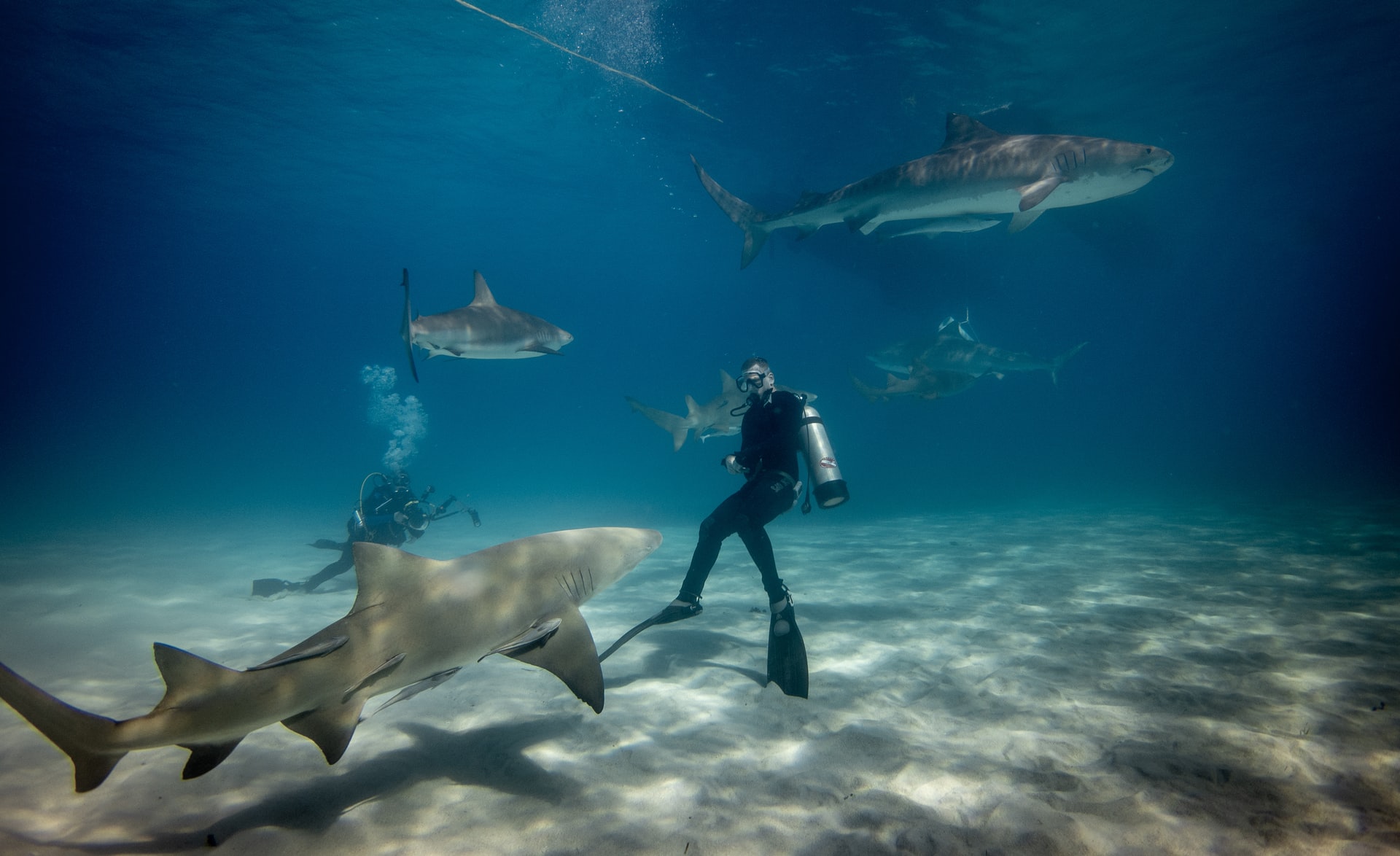
Are Sharks Scared of Scuba Divers? (What Every Diver Must Know)
-
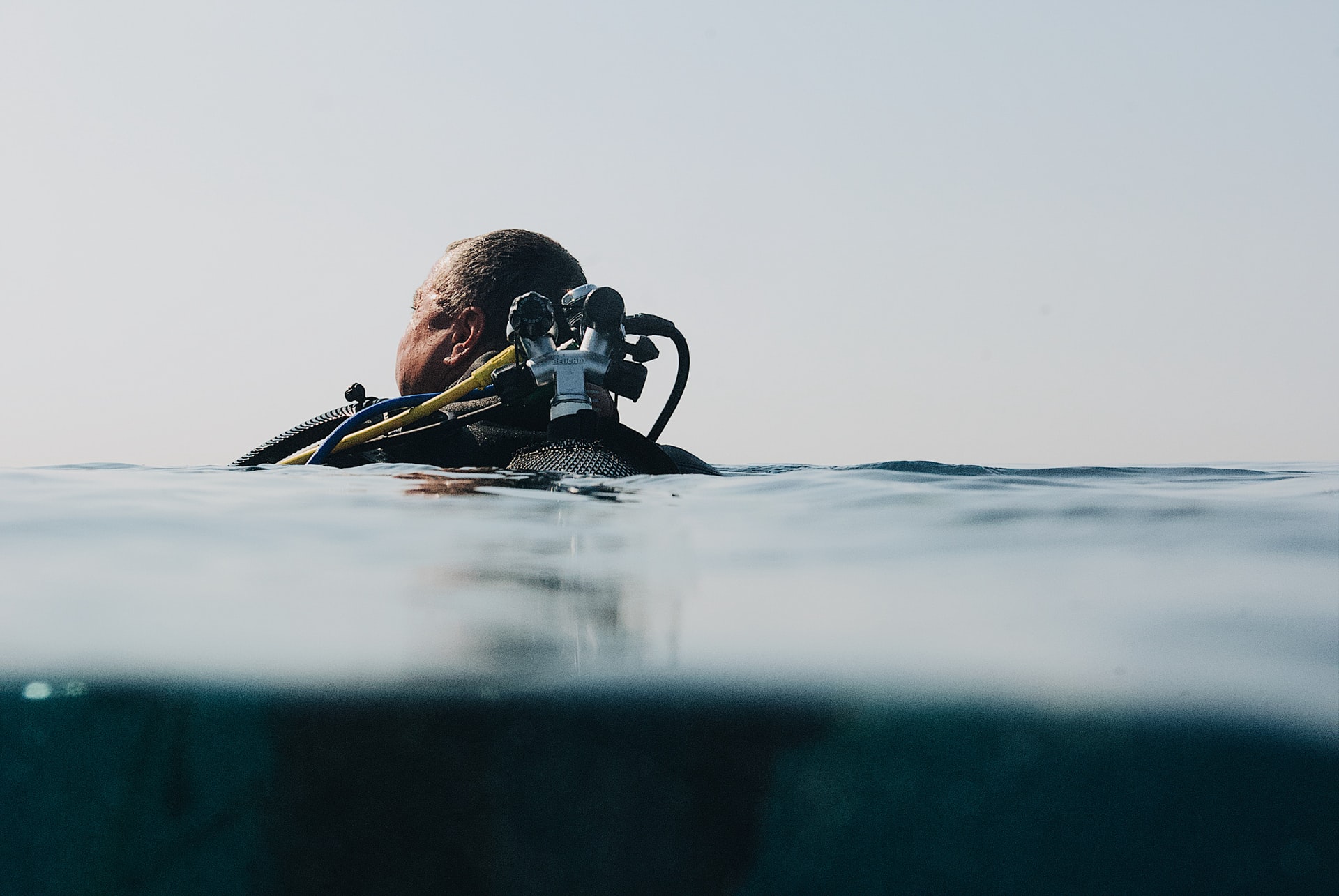
Who Should Not Scuba Dive? 17 Reasons (Every Diver Should Know)
-
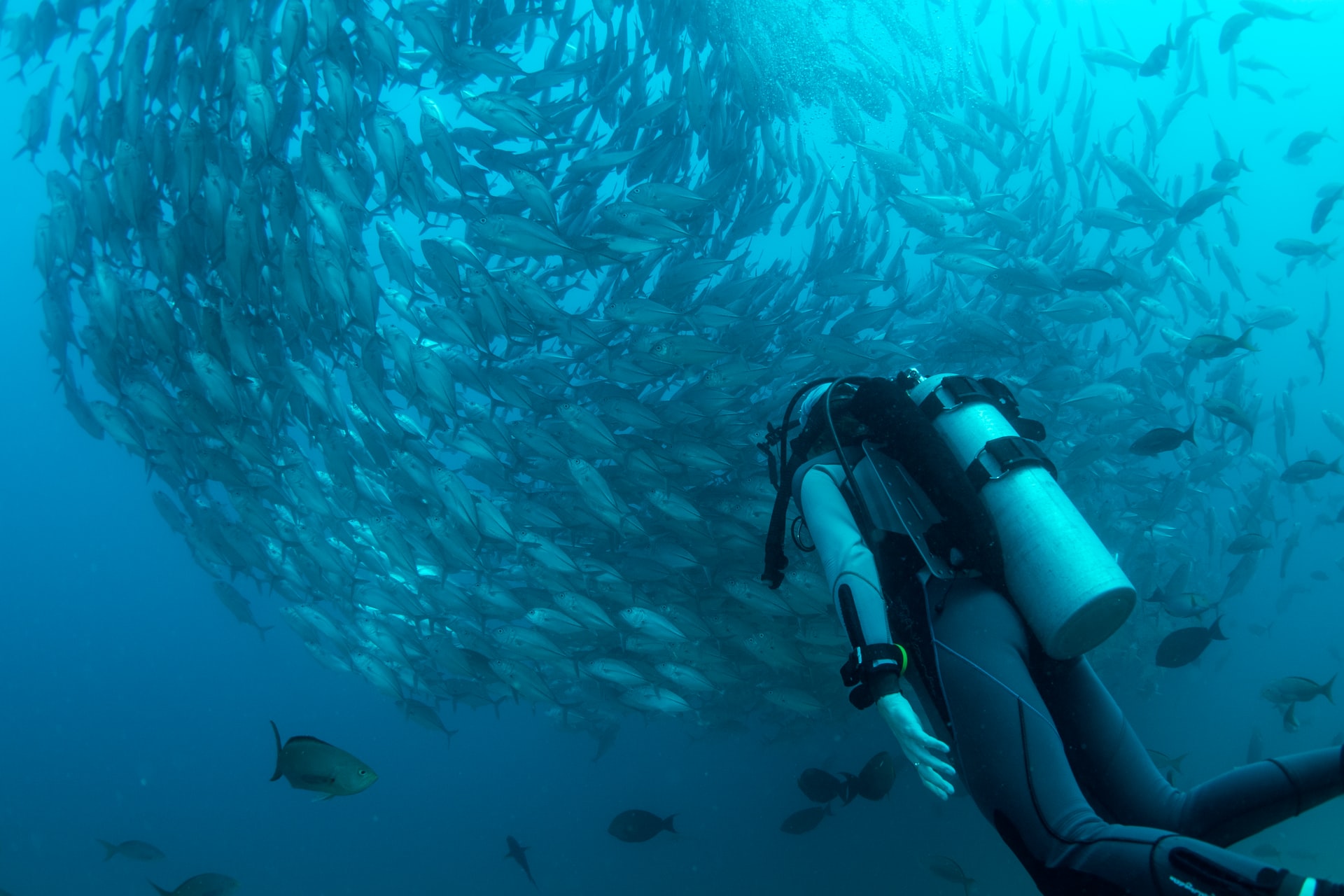
Should I Be Scared of Scuba Diving? 8 Common Fears (Debunked)
-
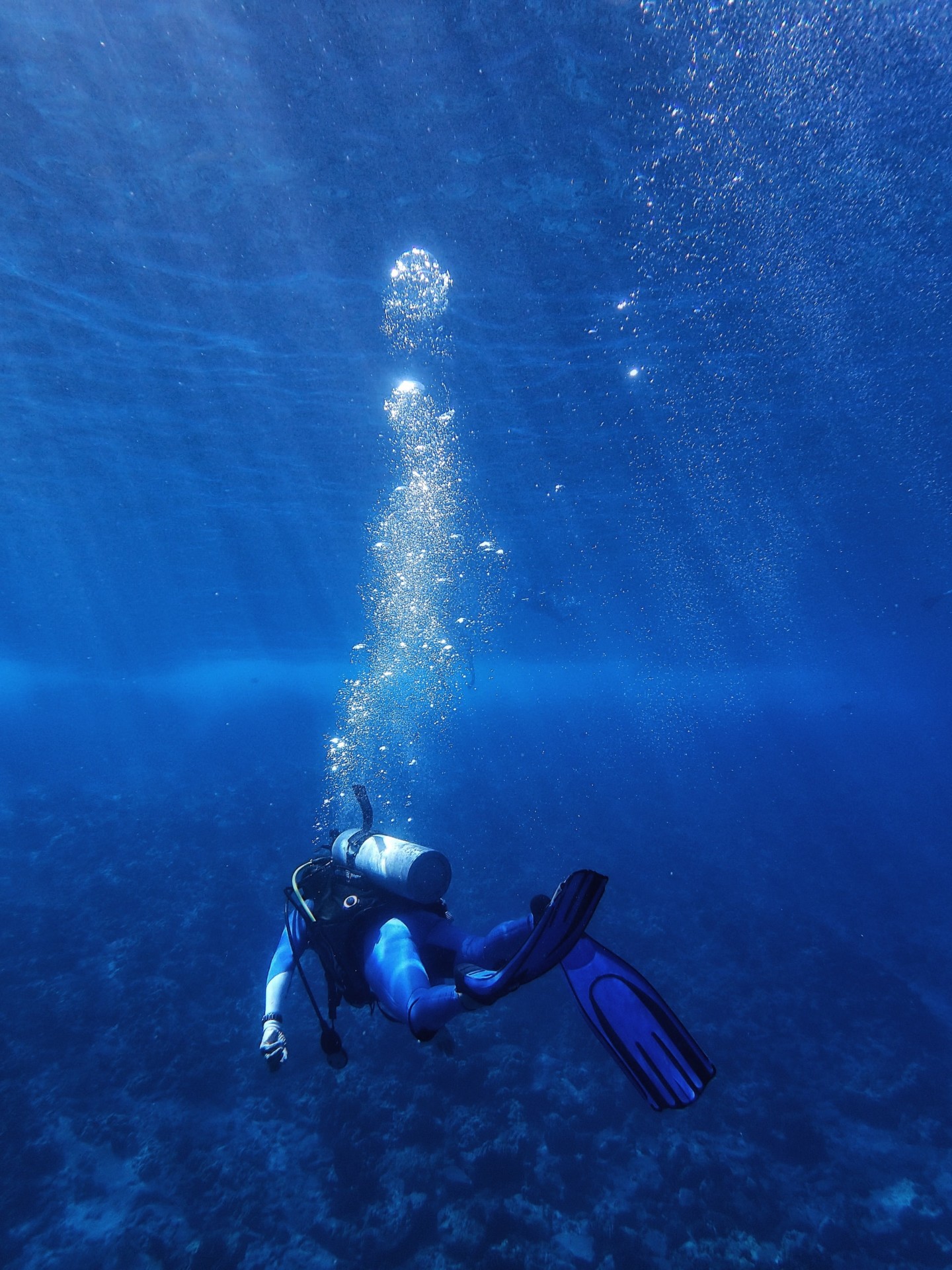
Why Do Scuba Divers Use More Air at Depth? (+4 Practical Tips)
-
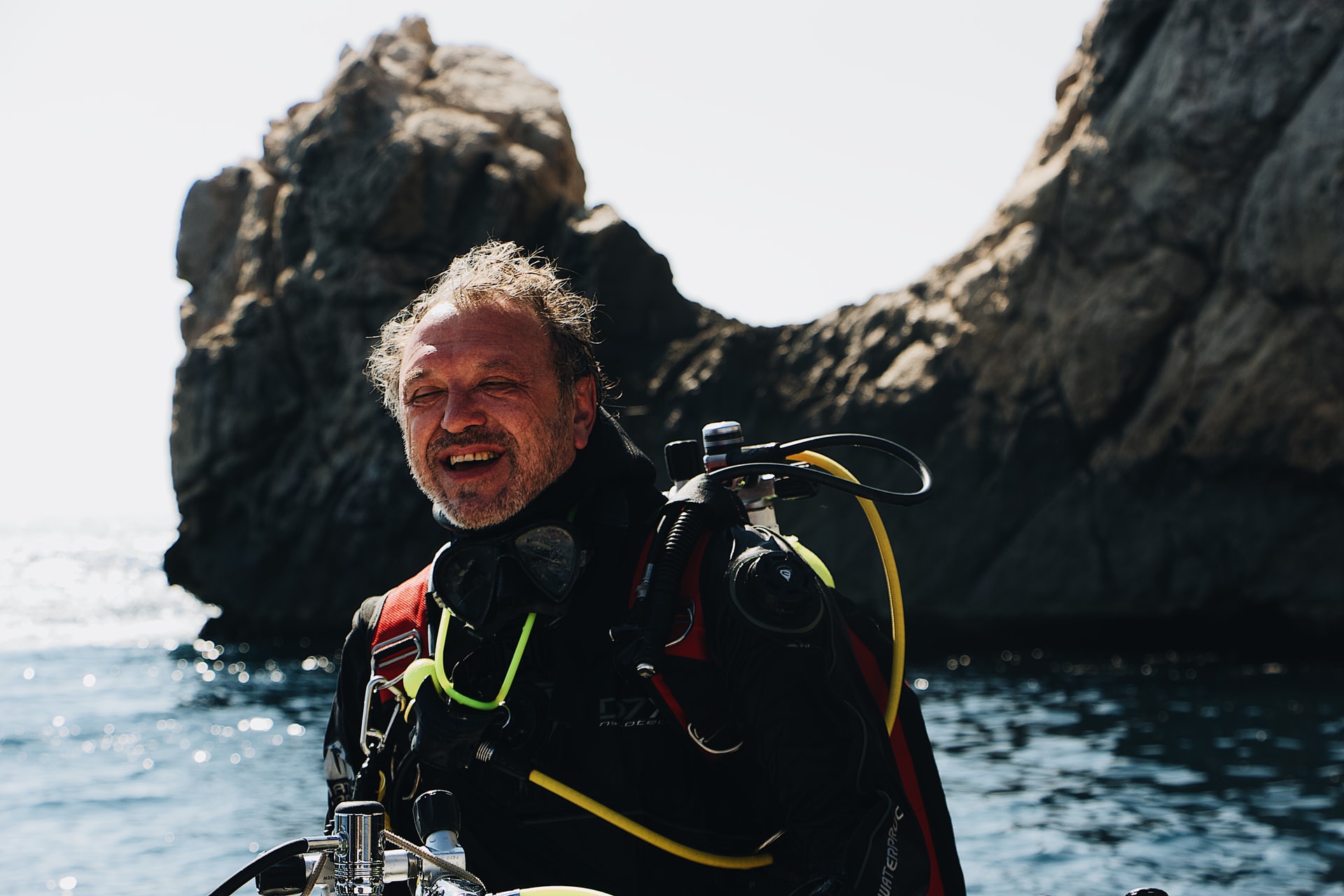
At What Age Should You Stop Scuba Diving? (+9 Tips for Older Divers)
-
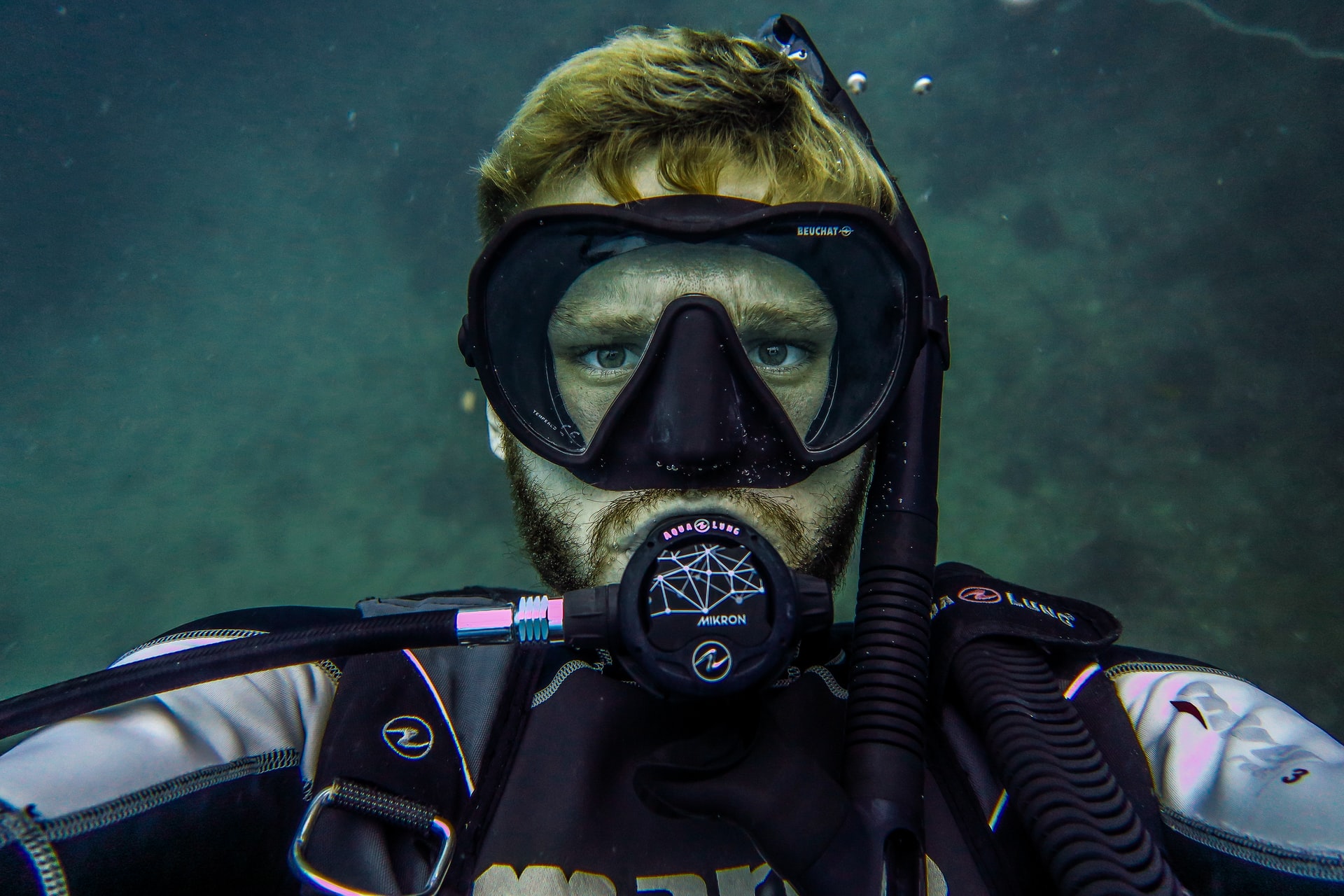
Should I Shave Before Scuba Diving? Crucial Facts (+9 Helpful Tips)
-
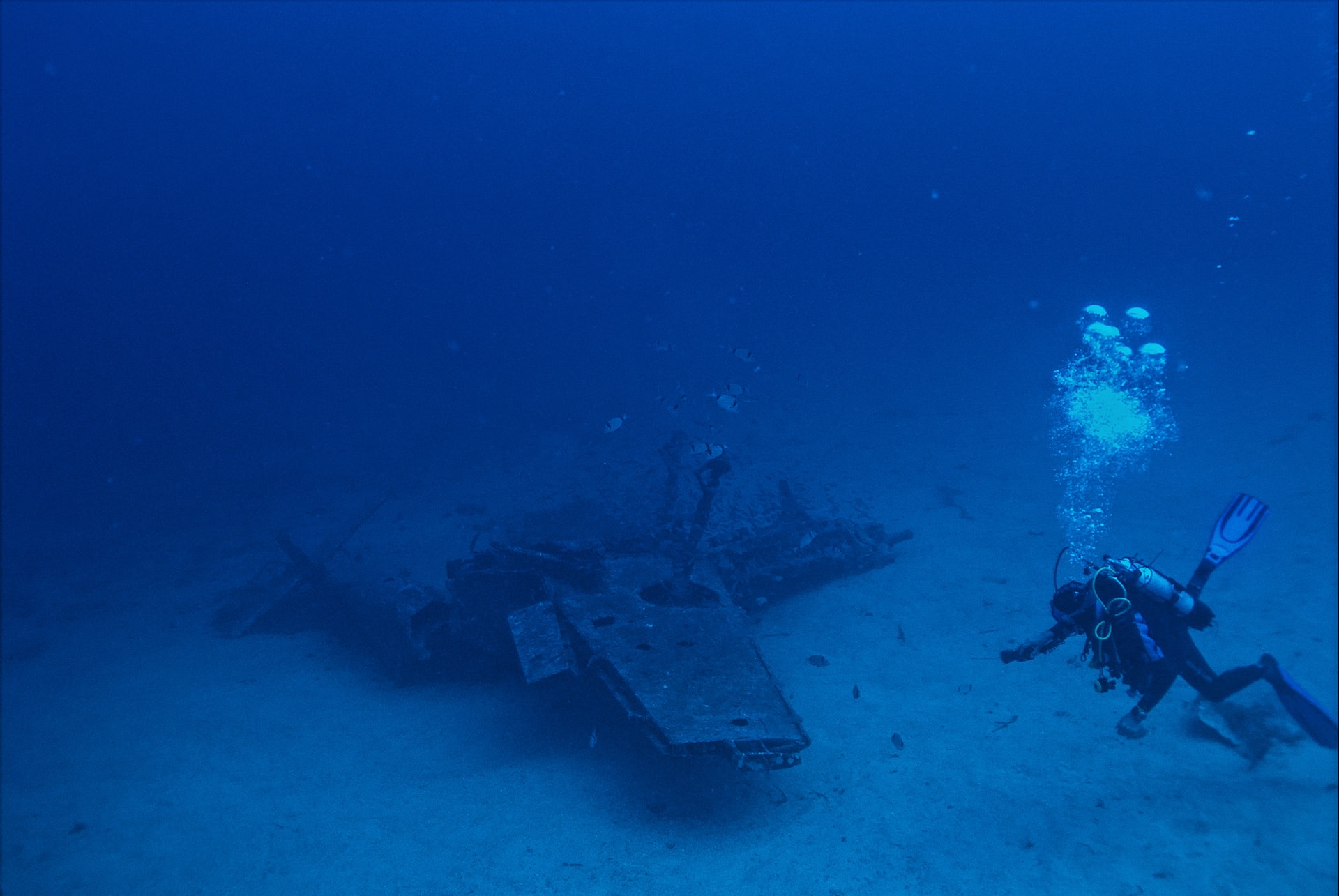
Why Do Scuba Divers Use Helium? (+Its Pros & Cons)
-
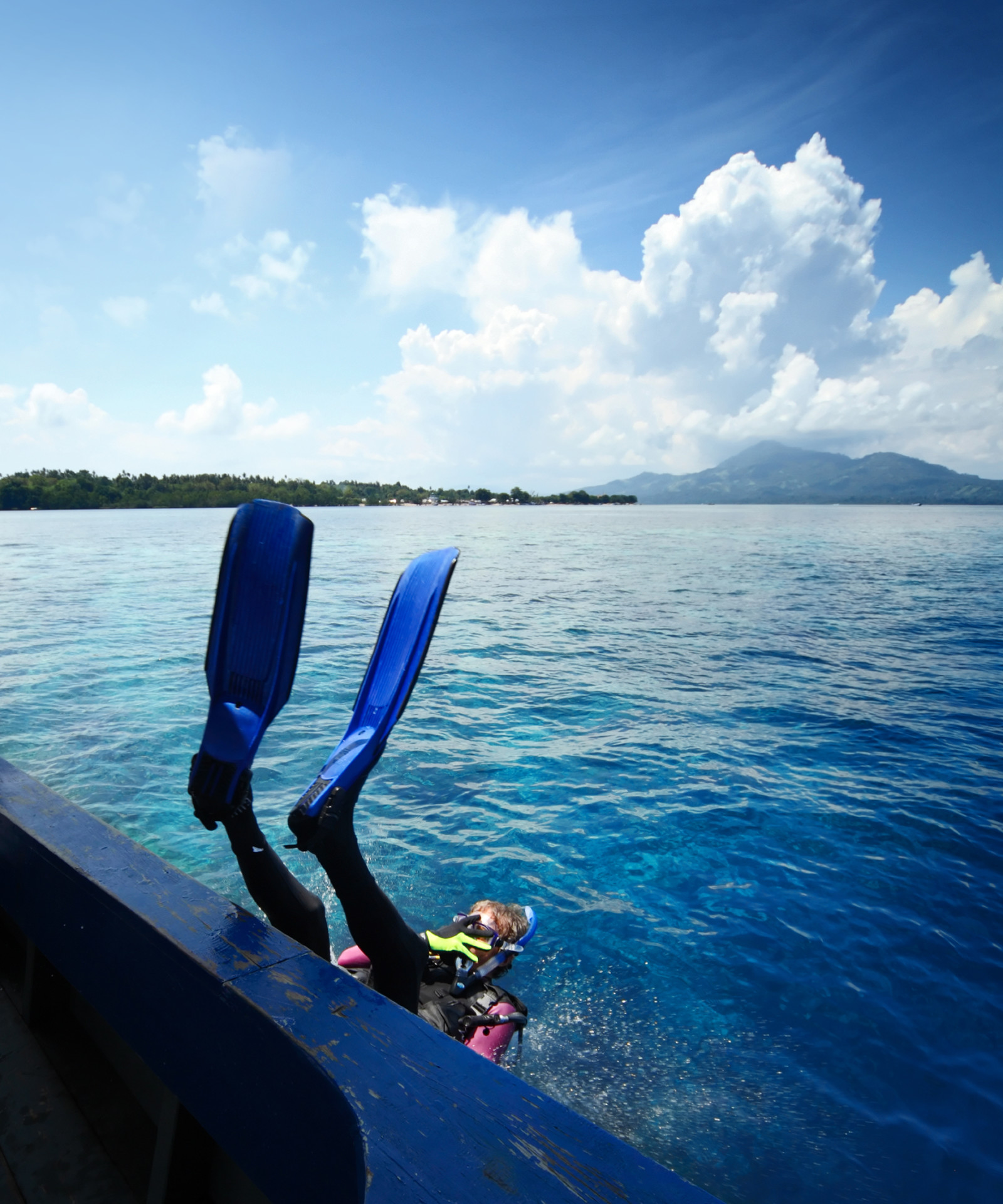
Why Do Scuba Divers Go in Backwards? (+3 Alternative Entries)
-
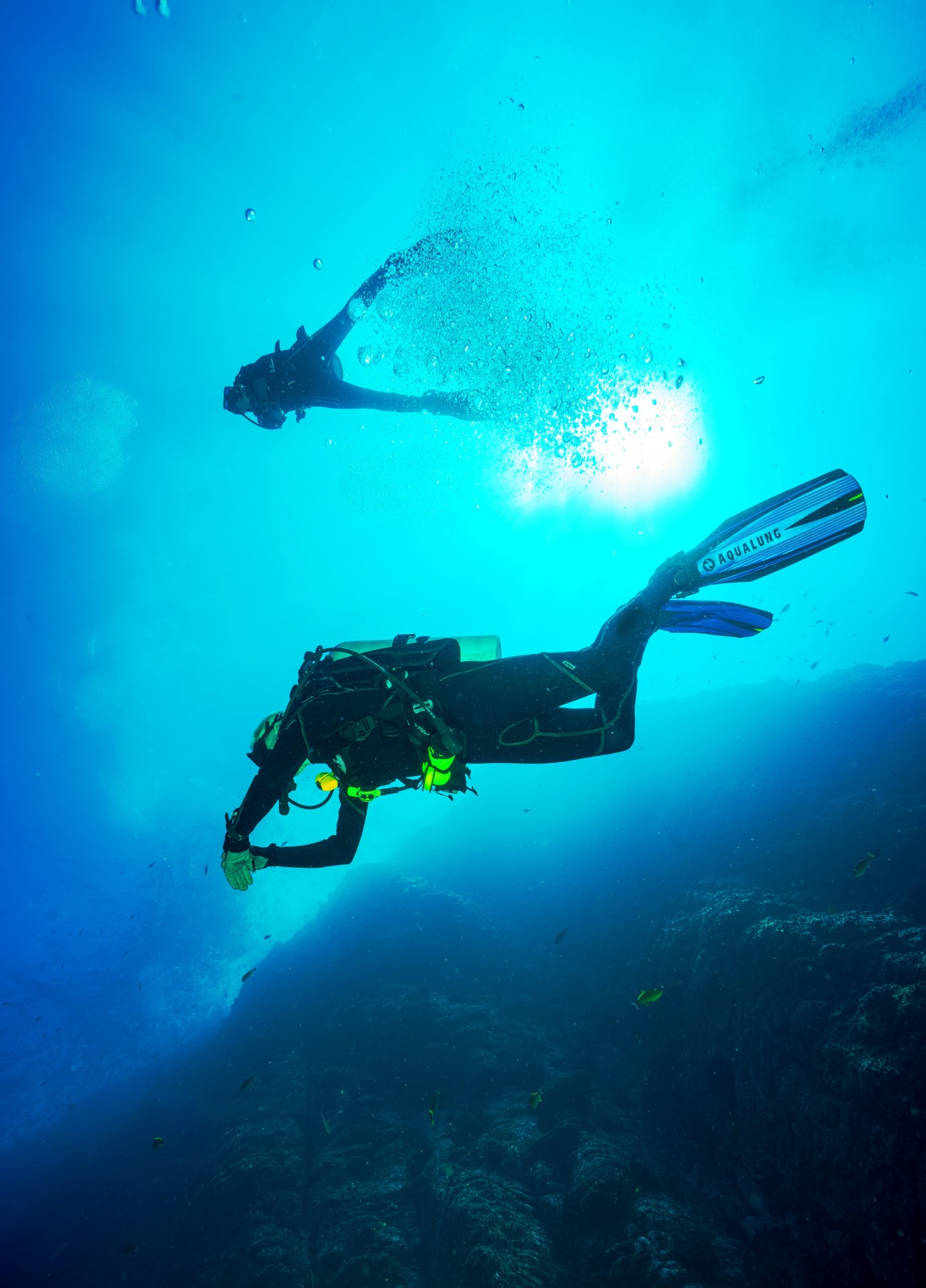
How Do Scuba Divers Sink and Float? (+Tips to Get It Right)

